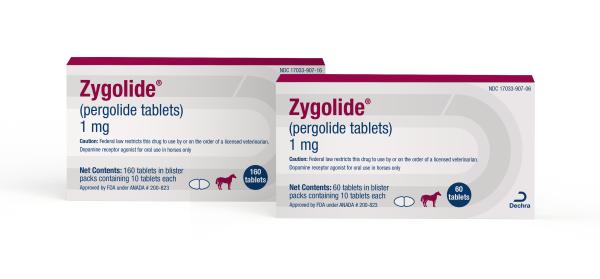
Medical recordkeeping is an important task in any equine practice. At the 2024 American Association of Equine Practitioners’ Convention, presenters shared best practices for keeping medical records in racetrack, performance horse, and ambulatory practice.
Best Practices for Medical Recordkeeping in Equine Practice
Jeff Blea, DVM, equine medical director of the California Horse Racing Board, explained that medical recordkeeping is an essential part of every state’s veterinary practice act. To ensure legal compliance, medical records should include facts, accuracy, completeness, and exhibits, easily remembered by the acronym FACE, he stated. Remember, medical records are your defense in a legal or regulatory matter. “If it isn’t written down, it didn’t happen,” he cautioned.
Never alter records after they are requested in a case. Electronic medical records are very helpful in this regard because they are secure, unalterable, and have an audit trail. If you need to make amendments or addendums to records, they are acceptable if they are signed and dated. Blea suggested checking your state laws, but most require records to be contemporaneous and completed within 24 hours. In some states, veterinarians are prohibited from taking records home to complete.
Blea said state boards will “take umbrage” with the following:
- Inaccurate entries, including inaccurate dates.
- No body weight or TPR (temperature, pulse, respiratory rate) listed in each entry.
- Lack of notation of client consent.
- Illegible entries.
- Inappropriate or derogatory comments.
- Self-incriminating comments.
- Failure to document all communication.
- Failure to document treatment recommendations and client acceptance or decline of such.
- Incomplete records.
- Failure to document dispensed, controlled, and compounded medications and consultations about such.
Medical Recordkeeping for Racetracks
Recordkeeping can be especially challenging at racetracks because the state racing authority might have different medical record entry requirements from the state board. Even more challenging are the Horseracing Integrity and Safety Authority’s new rules, which often do not align with state board edicts.
There are some workarounds for these challenges. To gain client consent, Blea suggested sending an annual authorization to each horse owner to contract for veterinary services. This form should include contact information, the percentage of ownership, financial responsibility, determination of an authorized agent, and treatment authorizations. An attorney can draft a document suitable for your state. Creating electronic forms allows them to be more easily added to the electronic medical record, he said.
Before giving medications, you must include a diagnosis in every medical record entry, Blea warned. All treatments should be documented with the type and name of medication, strength (mg/ml), location of injection, dose in milligrams, time given, and results of the physical examination. In closing, he recommended, “Document, document, document!”
Medical Recordkeeping for Performance Horses
Mark Baus, DVM, partner at Grand Prix Equine, then discussed the unique issues that might arise when caring for performance horses. One challenge with this population of horses is that many of them travel to different competition venues, where they might be seen by veterinarians other than their primary doctor. In addition, many people are typically involved in a performance horse’s care, including the owner, rider, trainer, and barn manager. Therefore, it’s ideal for medical records to be easily accessible and shareable. They must also be unalterable.
The medical record should include detailed reports of every examination; radiographic, ultrasound, CT, and MRI images with interpretation; laboratory test results; diagnosis and treatment plan; and a complete log of communications, Baus stated. Because memory degrades swiftly, especially when examining multiple horses, you should write records as soon as possible, preferably during the examination. If you cannot complete the record contemporaneously, take detailed notes. A horse show veterinarian must have access to the medical records so they are not starting with a blank slate, which could cause harm. These records are important for rechecks, so review them carefully before the next visit. If you are the second or third opinion, or if you are examining a new horse at a competition, it’s essential to carefully examine the history, previous findings, and images, Baus said.
Many performance horses have both a wellness veterinarian and a sports medicine veterinarian. It’s important for these two veterinarians to communicate to maintain optimal health and performance. Often, the trainer and barn manager are more involved in the horse’s care than the owner, so you should share the medical records with these parties (with the owner’s permission). In addition, farriers often appreciate receiving detailed instructions from the veterinarian, Baus continued. You can deliver records as email attachments, including links to diagnostic images, but it is important to utilize methods that render these records unalterable, he said.
With prepurchase examinations, all clients should fill out a form acknowledging the limitations of the exam. The horse’s prior medical records should be released if available, and the rider/handler during the exam should sign a liability release. The veterinarian should send the report to the client the same day before they finalize the purchase, Baus said.
At high level competitions, veterinarians must inform the FEI delegate of any veterinary treatment or procedure prior to performing it. Medication reports might be required. Veterinarians should review USEF and AQHA regulations regularly. When seeing animals at a horse show, send reports to all connected veterinarians, he said. By being inclusive and complete, the performance horse will receive the very best of care.
Medical Recordkeeping in Ambulatory Equine Practice
Peter Kazakevicius, DVM, an ambulatory practitioner from Ocala, Florida, acknowledged that creating complete medical records as prescribed by law can be tedious and overwhelming, especially for the busy veterinarian. Despite this, he said, it is beneficial because it is required by law, it is good medicine, it is good business, and it is a way to mitigate risk. “Good medical records are the best defense against client complaints and civil lawsuits,” he stated.
Records must be clear, concise, complete, timely, and legible. It is important to note the horse’s barn name and the registered name and notate when a client declines a recommendation.
“An invoice is not a medical record,” Kazakevicius said. Using templates, technicians, and technology—including new artificial intelligence applications—can help you create appropriate medical records, he said.
Legal and Administrative Liabilities
Attorney Mike Casey rounded out the session by discussing legal and administrative liabilities. He warned that if you receive a complaint, all your medical records might be examined, not just those associated with the original complaint. In recent years, complaints against veterinarians have increased dramatically, as clients can now file them electronically 24/7/365. Therefore, Casey urged veterinarians to document everything and ensure every party involved can understand what you have written. “Good records are the foundation of a good defense,” he said. “Absence of evidence is not evidence of absence.”
According to Casey, the most common complaint in veterinary medicine is alleged improper charges, and the most common violation is improper veterinary records. Because state boards are responsible for protecting the public, “they have broad discretion to go anywhere they want once they have your materials.” Importantly, HISA violations are board violations in all states where a veterinarian is licensed, even if the action is not illegal in all states.
In Texas, all off-label and use of compounded medications must be approved by clients and noted in the medical record. Casey recommends veterinarians in all states follow this procedure in light of the severe legal consequences that have followed adverse reactions in horses in the past. “Poor records are the gateway to more serious consequences,” he warned. “Reckless allegations hurt the profession, so be as verbose as possible in your records.”
Final Thoughts
To conclude the session, the four speakers formed a panel to answer questions from the audience about medical recordkeeping in equine practice. One piece of important advice that emerged was the recommendation to buy PLIT license defense coverage, which will provide an attorney to defend you in front of the state board. If you have an existing claim against your license, you will not be able to obtain this coverage for three years, so buying it early in your career and maintaining it each year is important. Once a claim is made to a state board, it cannot be stopped, even by the complainant.
The take-home message from this important session was that creating lawful medical records is essential to protect your license, livelihood, and practice reputation.
Related Reading
- Increase Efficiency in Your Equine Practice With Electronic Medical Records
- Responding to Client Complaints and Avoiding Malpractice in Equine Practice
- Legal Aspects of Telemedicine in Equine Veterinary Practice
Stay in the know! Sign up for EquiManagement’s FREE weekly newsletters to get the latest equine research, disease alerts, and vet practice updates delivered straight to your inbox.




